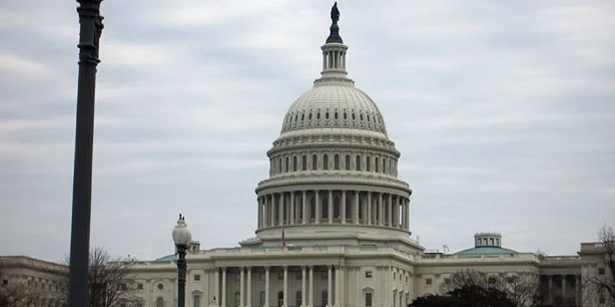What happens to science when the funding stops? That seems to depend less on whether or not you’re a federal employee, and more on how long the shutdown lasts.
Take June Lum, PhD., a government contractor working with a team of about 10 researchers at the Natick Soldier Research, Development and Engineering Center (Natick, MA). Experimenting with the use of metal-oxides in fabrics, she is now one of four researchers on her team that has not been furloughed (the federal researchers have been sent home, the federal contractor researchers are still working).
Functioning without the direction of their PI, Lum says her team is making the most of the situation—acknowledging that it is only a short-term solution. “Next week might be where the biggest impacts [of the shutdown] come in to play,” said Lum, “We’re kind of in a holding pattern. My PI said repeat a couple of the experiments to see if you can get consistent data, but we're not doing anything new.”
So the question is, if the shutdown continues what will happen to science? Here are the 5 issues that we foresee.
- Timely research won’t wait. As one scientist on Reddit put it, you can’t tell animals to delay mating season. Lapsed research can mean having to redo entire experiments, which can be costly. More, in a worst-case scenario, such pauses might also affect routine reviews of a lab’s research, and even if given leniency due to the shutdown, they could result in a board’s decision to stop funding altogether.
- Non-federal researchers could be furloughed. Government contracted researchers don’t get furloughed, but a delay in funding installments (because no lab gets all their funding upfront) can be just as bad. Most labs are likely reducing spending right now—canceling meetings that require travel, reducing orders for reagents and lab equipment—but if a shutdown lasts longer then a few weeks funding could run out all together. In that case, even these labs will be forced to shut down, and all workers will be sent home.
- Smaller pay checks. Post-docs, researchers and lab assistants are often notoriously underpaid. Introduce a furlough, and you will have people worrying about paying their rent.
- No access to public information. When government websites go down, students loose access to public resources, such as those provided by NIH.com, which states its information may not be up to date.
- Delay in grant applications. Like the long line at the RMV on a Saturday morning, expect those reviewing grants at the NIH to have you wait it line.
- ...And if you’re like me, trying to get in contact with a network of scientists via e-mail, expect few to respond until their accounts have been reactivated.
“The real effect here is uncertainty,” says Seth Darling , PhD., a scientist on JoVE’s editorial board, “That's the core problem. Uncertainty is very damaging to a research environment in general. This goes beyond just the shut down, it's issues with federal funding in general—there's been a lot of uncertainty for years now. Research is inherently a long-term process, so having a lot of short-term uncertainty is an obstacle to efficient and effective long-term innovation.”

